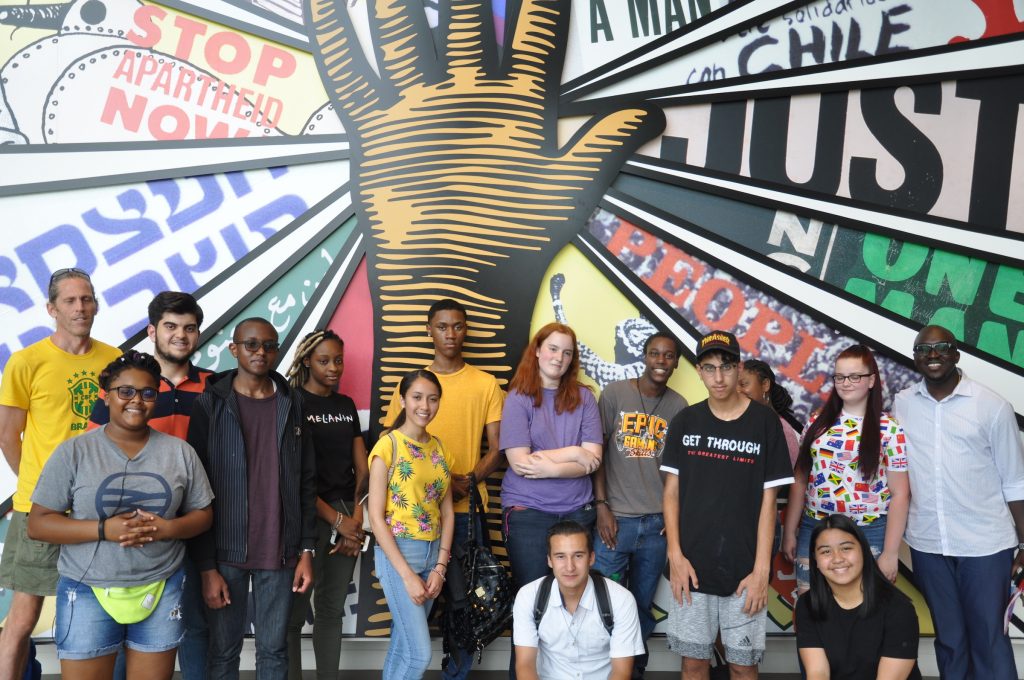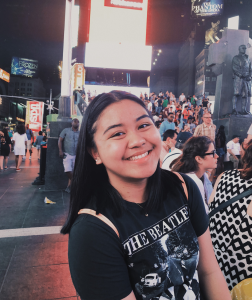
When Sistine, a high school student from Queens, New York heard about The Experiment in International Living at an after-school program, her heart was set on going to France. But visa issues complicated her application. So, the 18-year-old immigrant originally from the Philippines applied to the USA: Human Rights & College Discovery Program instead.“I believe everything happens for a reason”, she says cheerfully as the group leaves the LGBTQ Center in Greenwich Village.
Together with 11 other teenagers, Sistine is among the first group of students on The Experiment’s new inbound U.S. program, which kicked off in New York City mid-July. The two-week summer experience for high school students offers an in-depth look at human rights, social justice issues, and colleges in New York, Washington, DC, and Atlanta.
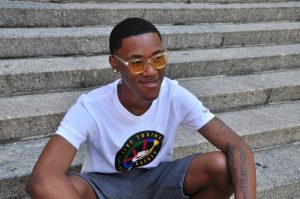 The first students to participate in the program are a diverse group from around the country including Kansas City, Philadelphia, Boston, San Jose, Pittsburgh, Baltimore and a small town in Vermont as well three international students from Kenya, Israel, and Iraq.
The first students to participate in the program are a diverse group from around the country including Kansas City, Philadelphia, Boston, San Jose, Pittsburgh, Baltimore and a small town in Vermont as well three international students from Kenya, Israel, and Iraq.
The first night, the group visited the Empire State Building in mid-town Manhattan and took in the city skyline from different directions. Noah, a tall, easy-going student from Boston, says he enjoyed seeing the views.
The next day Experimenters toured the United Nations, where they had the opportunity to visit the hall where the U.N. Security Council convenes, minutes before the start of an urgent session on Cyprus. They also learned about U.N. peacekeeping missions around the world, the establishment of The Universal Declaration of Human Rights, and the Sustainable Development Goals. Experimenters wrapped up their visit in the General Assembly Hall with a group photo.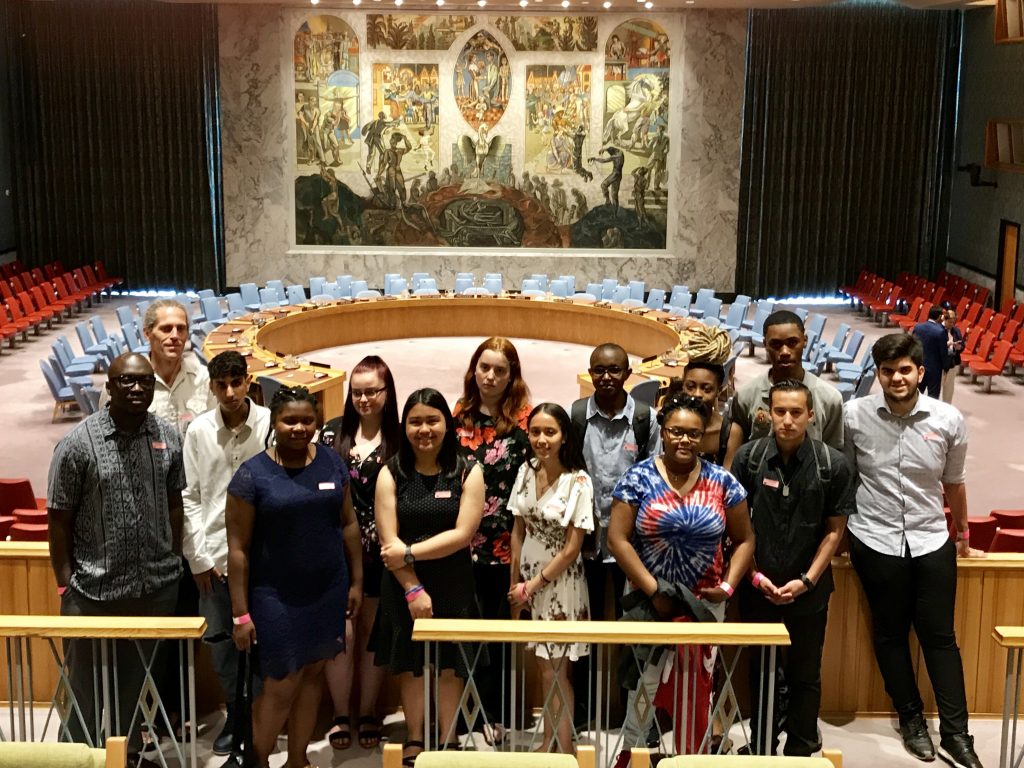 Next stop: a local focus on racial justice issues.
Next stop: a local focus on racial justice issues.
Experimenters piled into the cozy living room of Police Reform Organizing Project (PROP) Founder Bob Gangj to learn about ongoing police abuse against the city’s marginalized communities and the work of his group pushing for accountability and reform of the NYPD. Joined by a group of PROP student volunteers, the community activist described widespread racism and bias among police officers combined with a quota system for arrests.
The Experimenters’ visit coincided with the 4-year anniversary of the death of Eric Garner, an African American man selling loose cigarettes on the street, who was killed by a group of police officers.
At the end of the visit Ta’Kiya, a high schooler from Baltimore with a tattoo down her back proclaiming “Love is all you need” in Arabic script, asked why police officers target the black community. Together with the PROP host, Kwasi, the group’s thoughtful chaperone, offer several socioeconomic and political factors explaining the historical context without justifying it.
The afternoon was spent at Columbia University, an ivy league school in upper Manhattan established in 1754. The walk around the campus was cut short by torrential rain, thunder, and lightning. On the way to lunch, Sistine says she was eager to visit the campus as she plans to apply there to study chemical engineering as an undergraduate. (Later in the week, while in DC with the group, she is thrilled to learn she’s been accepted to a one-week summer program at Columbia for high school students called Biochemistry in Our Daily Lives.)
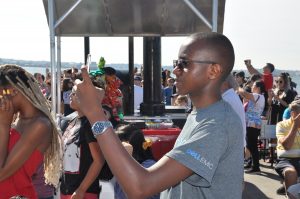 Andrew, a thoughtful student from Kenya, says the opportunity to see major universities in the U.S. was one of the reasons he chose to go on the USA Experiment program. “I’d like to attend MIT and study computer engineering,” he explains as we prepare to dart through the downpour to attend a lesson on human rights with Rainer Braun, a university lecturer.
Andrew, a thoughtful student from Kenya, says the opportunity to see major universities in the U.S. was one of the reasons he chose to go on the USA Experiment program. “I’d like to attend MIT and study computer engineering,” he explains as we prepare to dart through the downpour to attend a lesson on human rights with Rainer Braun, a university lecturer.
Later in the day, there’s a quick pitstop for a change of dry clothes back at the hostel. The group reconvenes for dinner and an interactive walking tour of Lower Manhattan with Black Gotham, an immersive visual storytelling experience that celebrates the impact of the African Diaspora on New York
City. As the rain passes, students learn about the early history of the city and the people that are often forgotten or overshadowed by more mainstream narratives.
The next morning everyone is thankful for the return of bright sunshine while boarding the ferry at Battery Park to visit the Statue of Liberty and Ellis Island. The group is excited to get seats on the boat’s top deck and enjoy the fresh air of New York’s Harbor before exploring the island and interactive museum that was once the gateway to America for more than 12 million immigrants from acrossEurope.
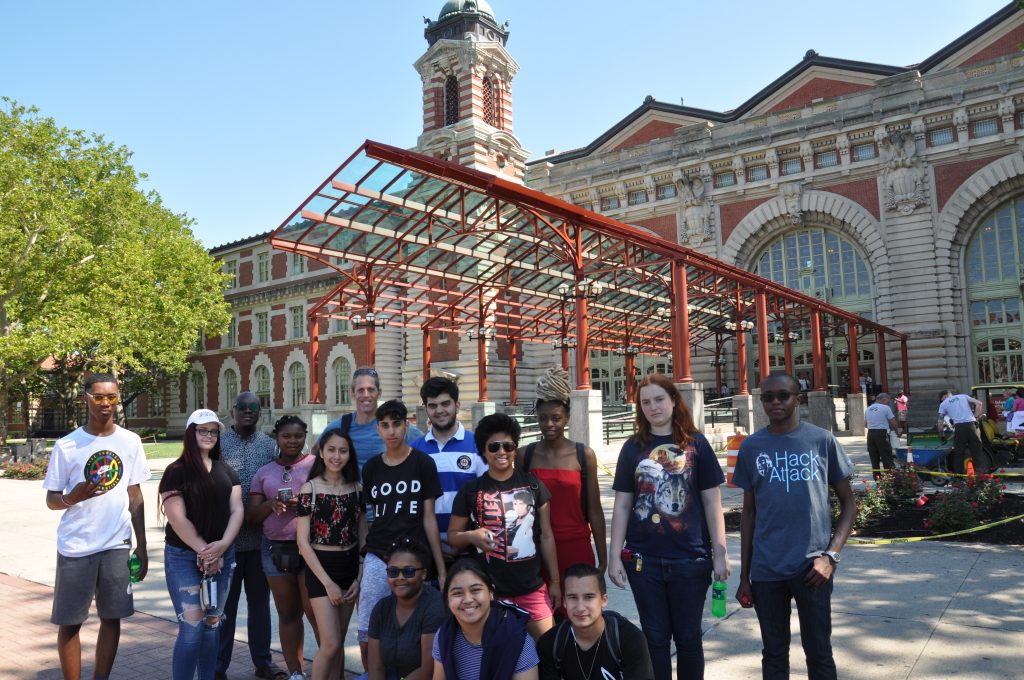 But first, a short stop to take in the colossal iconic torch-bearing copper sculpture, Lady Liberty, a gift from France in 1886, that continues to captivate all who behold her to this day.
But first, a short stop to take in the colossal iconic torch-bearing copper sculpture, Lady Liberty, a gift from France in 1886, that continues to captivate all who behold her to this day.
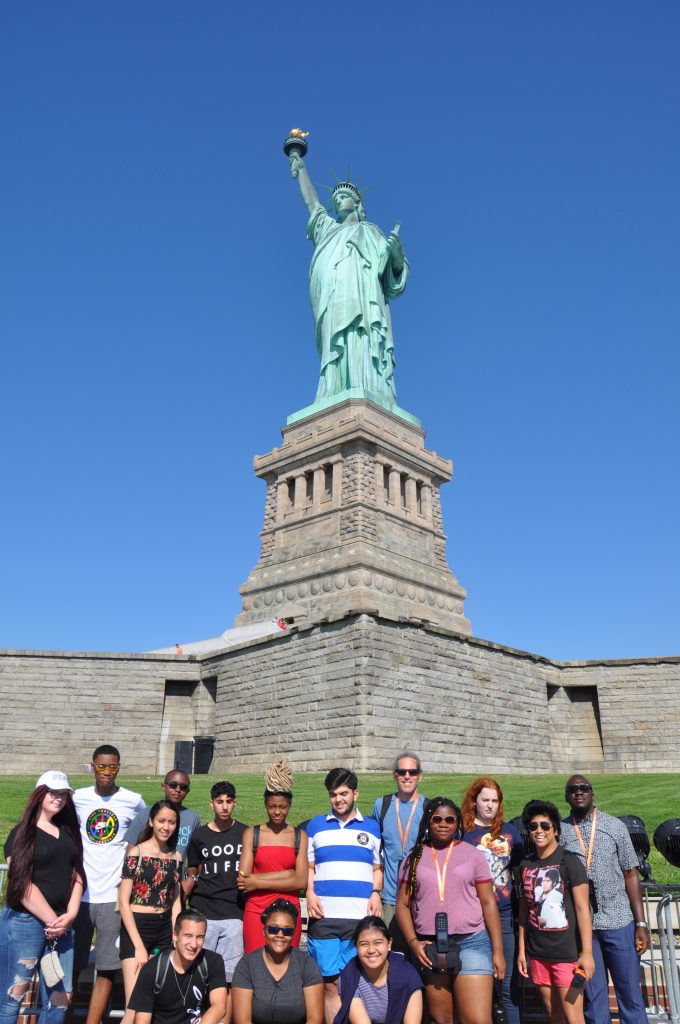 Mohammed, a friendly an 18-year-old Kurdish student from Iraq, says he was excited to visit the Statue of Liberty. “It symbolizes the freedom of America,” he says. He arrived from the Middle East earlier in the month just in time for the 4th of July firework display and explore New York with his uncle before joining the Experiment program.
Mohammed, a friendly an 18-year-old Kurdish student from Iraq, says he was excited to visit the Statue of Liberty. “It symbolizes the freedom of America,” he says. He arrived from the Middle East earlier in the month just in time for the 4th of July firework display and explore New York with his uncle before joining the Experiment program.
“The U.S. is totally different from all the other countries I visited,” he says wide-eyed and excited about all he has seen so far in the U.S.
Holding onto hope that he can somehow arrange a short meet-and-greet with President Trump while the group is in Washington, D.C. the following week, a beaming Mohammed says, “I’m proud to be the first Iraqi on the USA program.”
“I’m going to encourage other Kurdish students to come to America on The Experiment,” he adds.
The next day, Experimenters packed up and hopped an Amtrak train to the nation’s capital for a few days to visit monuments and George Washington University, and take part in discussions on human rights and social justice. Then it’s off to Atlanta, Georgia, where the group is spending the last week touring Emory University, visiting MLK’s Ebenezer Baptist Church, and enjoying a homestay – the hallmark of every Experiment program — with a local family, among other activities.
